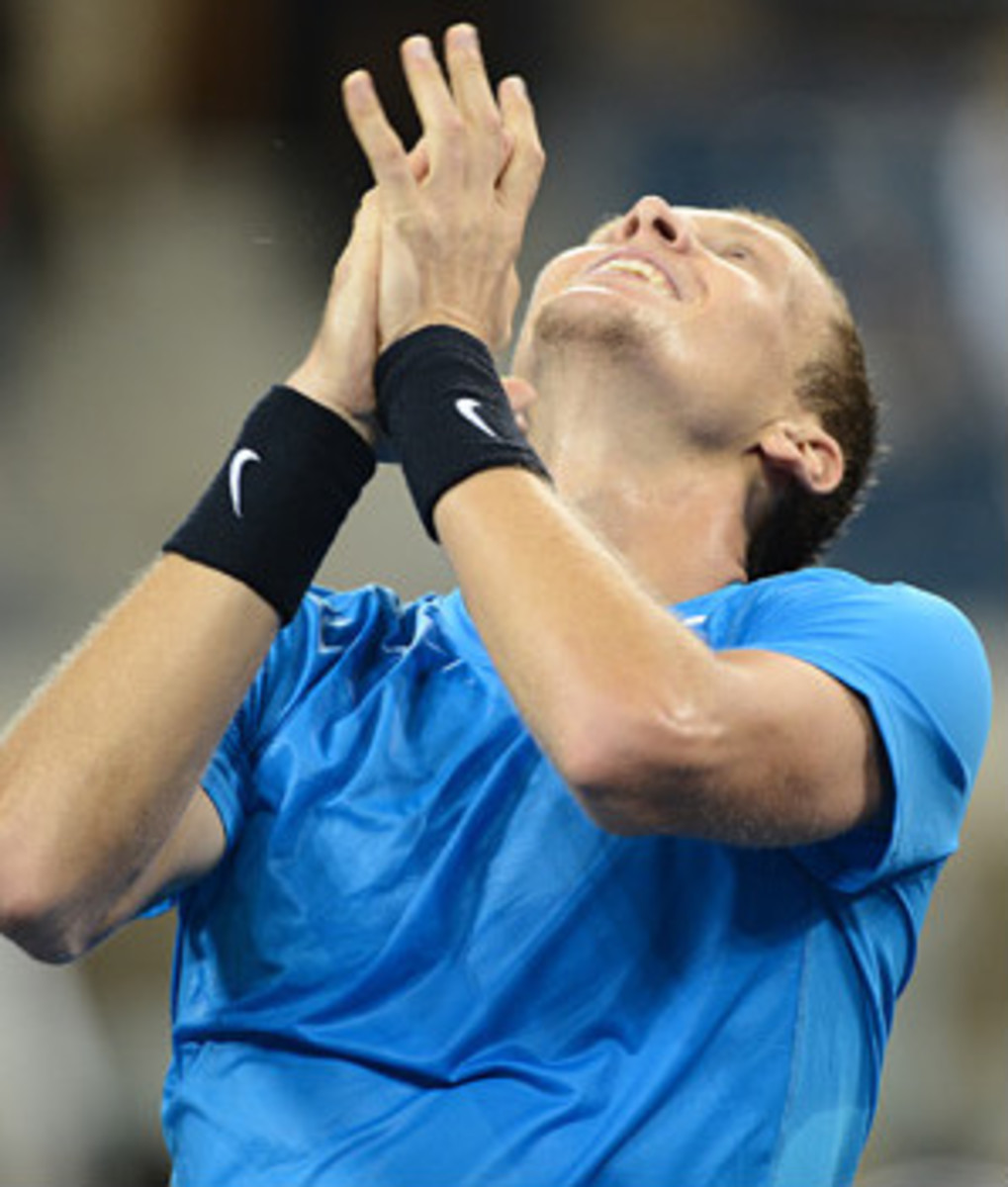Berdych holds his nerve, knocks No. 1 Federer out of U.S. Open
Three years after letting Roger Federer rally from two sets down when they met in the fourth round of the Australian Open, the sixth-ranked Berdych couldn't accept surrendering another commanding lead with a place in the U.S. Open semifinals at stake.
That's easier said than done against the presumptive greatest player of all time, whose siege mentality is among the most renowned in sports. Eight times in Federer's career, he'd escaped from a two-set hole to prevail, most recently against Julien Benneteau at this year's Wimbledon. "Probably having been there so often, down two sets to love," he explained then, "knowing how to handle the situation, not to panic."
Yet Federer's deep well of experience wasn't enough to salvage the result in Wednesday quarterfinal showdown, as Berdych held his nerve to win 7-6 (1), 6-4, 3-6, 6-3 over the top-seeded Swiss and register the upset of the tournament so far. Incredibly, it marked Federer's first loss in 22 night matches at Arthur Ashe Stadium -- against an opponent making his debut under the lights of the tournament's marquee stage.
Perhaps more impressively, the 26-year-old Czech improved to 4-3 against Federer since that soul-crushing loss in Melbourne -- no small turnaround after losing nine of their first 10 meetings.
"There is something in my game that he doesn't like, that makes him struggle a bit, maybe brings him out of his comfort zone," Berdych said afterward, no doubt in reference to his powerful, flat groundstrokes and thunderbolt first serve that topped out at 137 mph. "He always likes to have time, to be the one who is dictating the game."
Federer had yet to drop a set on his way to the quarters, winning 83 percent of his first-serve points and losing serve only once. But the 31 year old was slow to adjust to Berdych's intimidating pace, making 27 unforced errors through the first two sets, clearly rusty from four days of inactivity after fourth-round opponent Mardy Fish withdrew due to a health scare. ("I had 6 ½ days off and I ended up winning Wimbledon," Federer later said, refusing to attribute the loss to the added time off.)
When Berdych broke in the third for a 3-1 lead, a church-like hush fell over the audience. Minutes later, however, Berdych double-faulted twice to gift Federer a service break and the opening he appeared more than willing to capitalize on -- igniting a crowd overwhelmingly in favor of the 17-time Grand Slam champion.
"The momentum switch [of the break] no doubt gave me a chance, put the score back to zero, put him further away from winning, and made the match go longer, make it more physical, more mental," Federer said. "[But] I was still down two sets to one, so I wasn't celebrating too much."
The critical point came with the Swiss serving at 3-4 in the fourth, when Berdych uncoiled a sharply angled forehand winner that caromed so far beyond Federer's reach he scarcely made an effort for it. Four points later, Federer netted a meek attempt at a drop shot and Berdych held his arms aloft in celebration.
"There's always a danger with Tomas if you're down in the score and he can take some chances," Federer said. "He's obviously a shotmaker, so it's dangerous."
The result snapped Federer's run of eight consecutive U.S. Open semifinal appearances. The last time he was absent from Super Saturday was 2003, when Andy Roddick won the title.
Next up for Berdych is a semifinal date with Andy Murray, who advanced earlier Wednesday with a comeback that didn't fall short.
"If I'm able to play my game," Berdych said, "then I have a chance to beat anyone."





